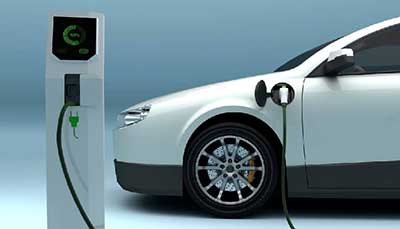Date: 27/03/2023
Relevance: GS-3: Science and Technology- developments and their applications and effects in everyday life.
Key Phrases: National EV Policy, Parliamentary Panel, Hydrogen Fuel Cell, Mobility Transition, Carbon Emissions, FAME, Flex Fuel Vehicles, Transmission Infrastructure.
Context:
- Recently, a Parliamentary panel recommended that the government create a comprehensive national policy on electric vehicles (EVs) that encompasses State-level and international best practices.
- The committee also called for an extension of the FAME-II scheme by an additional two years beyond its current deadline of March 31, 2024, to allow for a more thorough evaluation of its effectiveness.
Key Highlights:
- According to the Committee on Estimates, the policy should include best practices for charging infrastructure, battery swapping, battery waste management/recycling, and public awareness.
- The policy should also provide demand and supply side incentives, such as lower GST, waiving road tax, registration fee, and hire-purchase schemes at discounted interest rates by financial institutions.
- Additionally, the policy should serve as a guiding policy for all States/ UTs to ensure uniform growth of the EV sector.
‘Continue support’:
- The Committee stated that the removal of government support would
lead to a significant price increase of EVs.
- The Committee also expressed concern that many start-ups involved in the EV sector may have to shut down if the FAME-II scheme is closed.
- To avoid this, the Committee recommended extending the scheme by an additional two years to evaluate its effectiveness and make necessary adjustments to promote EVs.
- Additionally, the Committee recommended introducing a comprehensive FAME-III scheme based on the experience gained from FAME-I and FAME-II once the extended period of FAME-II is over.
- The goal of FAME-III would be to continue the penetration of EVs in the market to such a level that they can compete with internal combustion engine (ICE) vehicles in terms of upfront costs without requiring high incentives.
Adapting More Technology:
- The Committee recommended that the government promote other
technologies such as flex fuel vehicles, Hydrogen ICE, and Hydrogen fuel
cell vehicles alongside EVs and hybrid vehicles.
- It emphasized the need for a greater emphasis on mobility transition.
- In addition, the Committee suggested that a roadmap for setting up solar charging stations should be prepared in a time-bound manner to reduce dependence on electricity generated by using coal, in line with the government's green mobility objective.
- Regarding the production-linked incentive (PLI), the Committee
recommended that beneficiaries of the scheme should continue their
production even after its conclusion for the benefit of the domestic
economy.
- It further recommended that the government make it mandatory for beneficiaries to continue their production until at least 2030.
- The PLI for automobile and auto component scheme provides incentives to overcome manufacturing disabilities for advanced automotive technology, with a budgetary outlay of ₹25,938 crore spread over five years from 2022-2023 to 2026-2027.
Key Takeaways:
- A comprehensive national policy on electric vehicles incorporating the State-level and international best practices is needed to ensure a comprehensive and uniform growth of the EV sector.
- The extension of the FAME-II scheme beyond March 31, 2024, by an additional two years is necessary to evaluate the effectiveness of the scheme and make necessary adjustments to promote the EVs.
- The promotion of technologies such as flex fuel vehicles, Hydrogen ICE, and Hydrogen fuel cell vehicles alongside EVs and hybrid vehicles, and the preparation of a roadmap for setting up solar charging stations in a time-bound manner are essential to reduce dependence on electricity generated by using coal, in line with the government's green mobility objective.
- Finally, making it mandatory for beneficiaries of the production-linked incentive (PLI) scheme to continue their production until at least 2030 is a step towards benefiting the domestic economy
Conclusion:
- The recommendations made by the parliamentary panel on electric vehicles (EVs) are crucial for the growth and development of the EV sector in India.
- These recommendations, if implemented, will not only promote the adoption of EVs but also lead to the development of a sustainable and environmentally friendly transportation sector in India.
Source: The Business Line
Mains Question:
Q. In your opinion, what steps should the government take to promote the adoption of alternative fuel vehicles in India? Discuss the challenges and opportunities in implementing such measures. (150 words).







